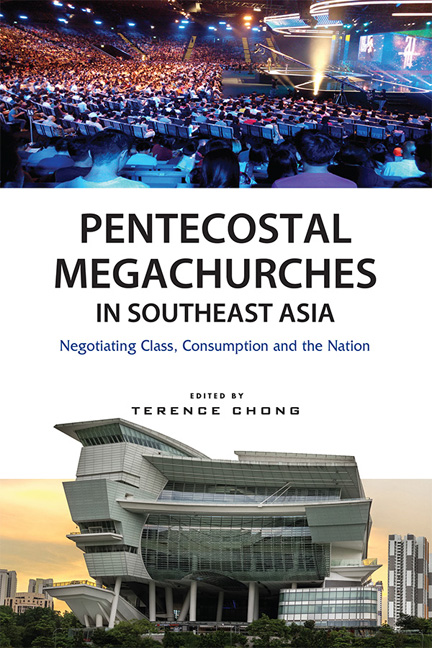Book contents
8 - Grace, Megachurches, and the Christian Prince in Singapore
from Singapore
Published online by Cambridge University Press: 04 July 2018
Summary
Introduction
Among the major religions in Singapore, Christianity has been the fastest growing faith in the last three decades. The percentage of the resident population aged 15 years and older — inclusive of citizens and permanent residents numbering around 3.12 million people — that professed to be Christians, increased from 10.1 per cent in 1980 to 18.3 per cent in 2010. The converts were overwhelmingly of Chinese ethnicity. Buddhism and Taoism, the main religious affiliations of the majority Chinese population in Singapore, have registered a decline from 57.0 to 44.2 per cent in the same period. Christianization trumps secularization, as those professing “no religion” increased from 14.1 to 17.0 per cent in the same period. The two trends compete for the same demographic group, namely, young adults with higher educational qualifications.
The fastest growth sector within Singapore Christianity is independent, non-denominational Pentecostalism. The four megachurches that belong to this sector have attendance numbers estimated to be above 10,000. They are City Harvest Church (20,000), Faith Community Baptist Church (10,000), Lighthouse Evangelism (15,000), and New Creation Church (30,000). All four churches were founded in the 1980s, at a time when Christianity in Singapore was experiencing a crisis of relevance; socially engaged liberal Christianity withdrew from the public sphere due to political crackdowns and the inability of conservative Christianity to fill the gap. Most of the founding pastors of these churches left their denominational churches, seeking to carve their own way with the interpretation of scriptures and adaptation of charismatic worship practices to the Singaporean context.
Megachurches have been successful in drawing young converts largely because of the preaching of contextual theologies relevant to the aspirations of the middle classes, as well as the adaptation of church practices to the urban consumerism and political conservatism brought on by the developmental state's programme of directed capitalist transformation of society. Their years of rapid growth, from the 1990s to the 2000s, coincided with the coming-of-age of a postcolonial generation of Singaporeans in a highly urbanized social and economic setting shaped by rapid modernization and change due to globalization.
- Type
- Chapter
- Information
- Pentecostal Megachurches in Southeast AsiaNegotiating Class, Consumption and the Nation, pp. 181 - 206Publisher: ISEAS–Yusof Ishak InstitutePrint publication year: 2018



